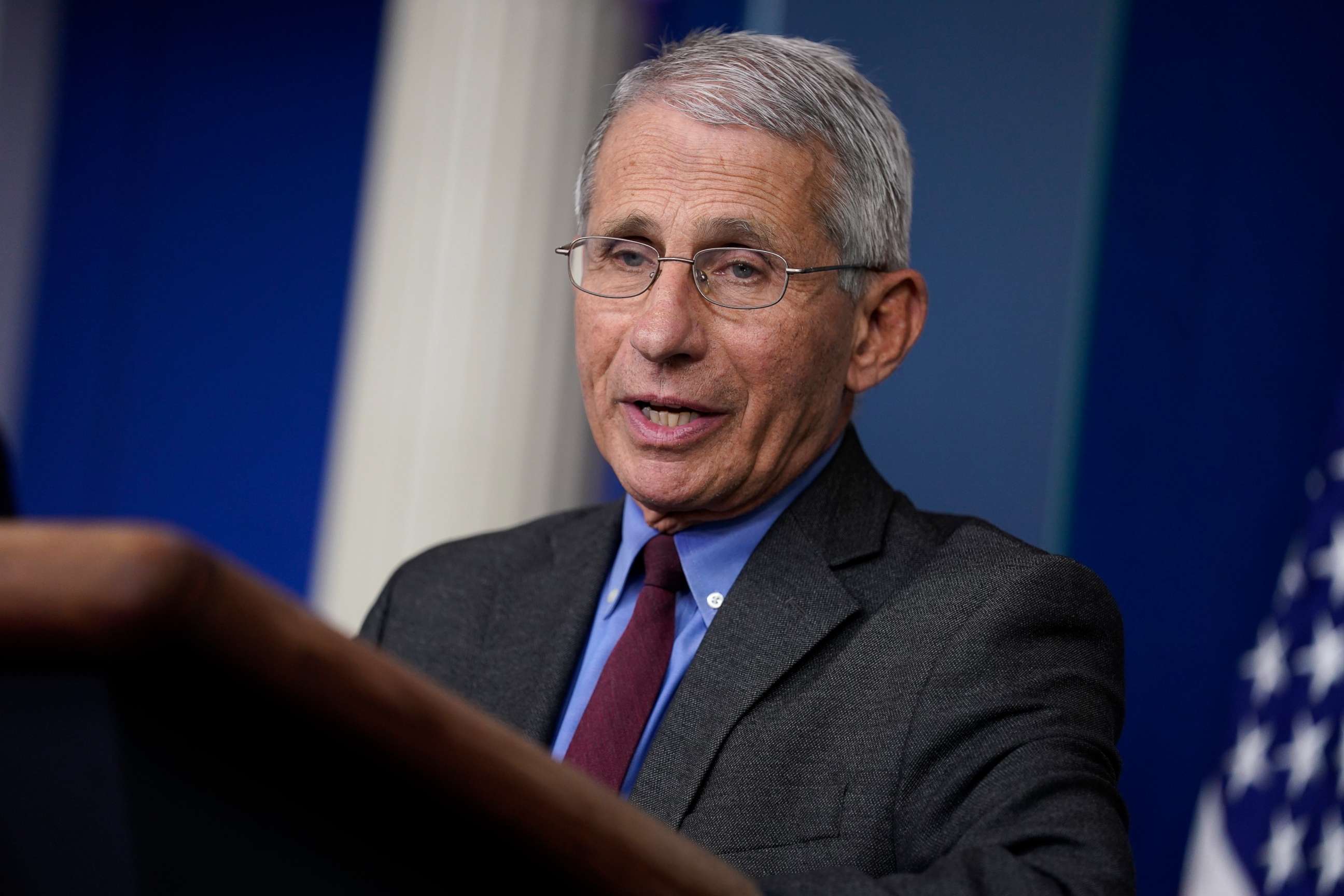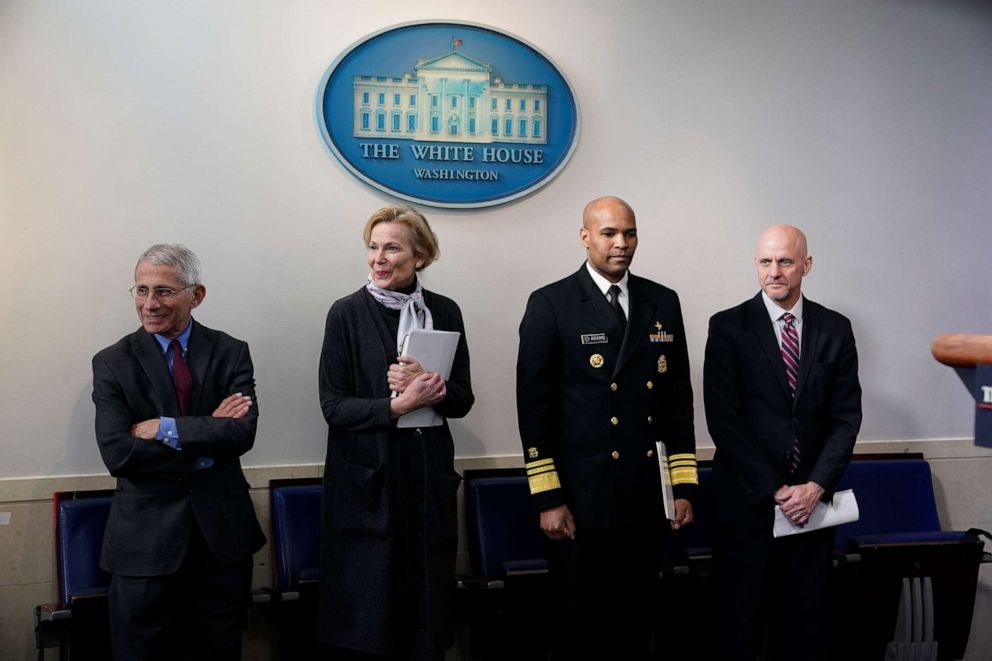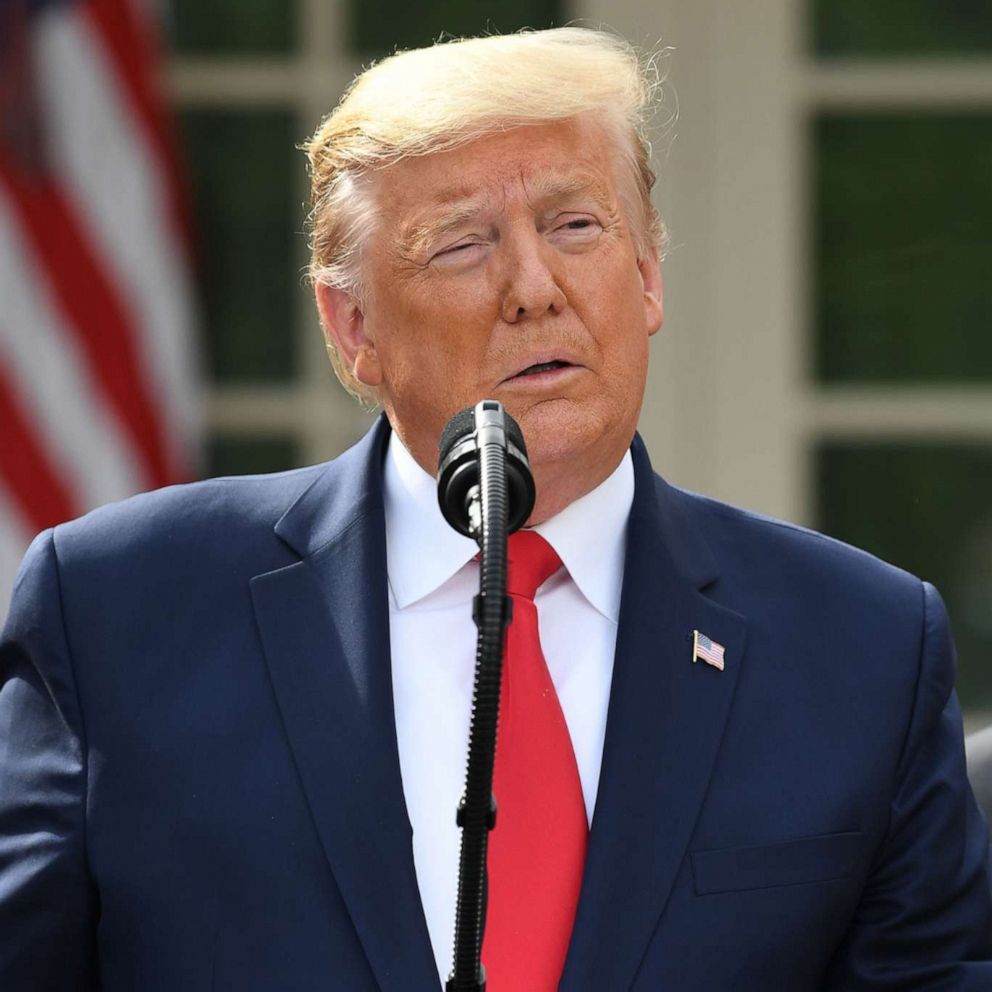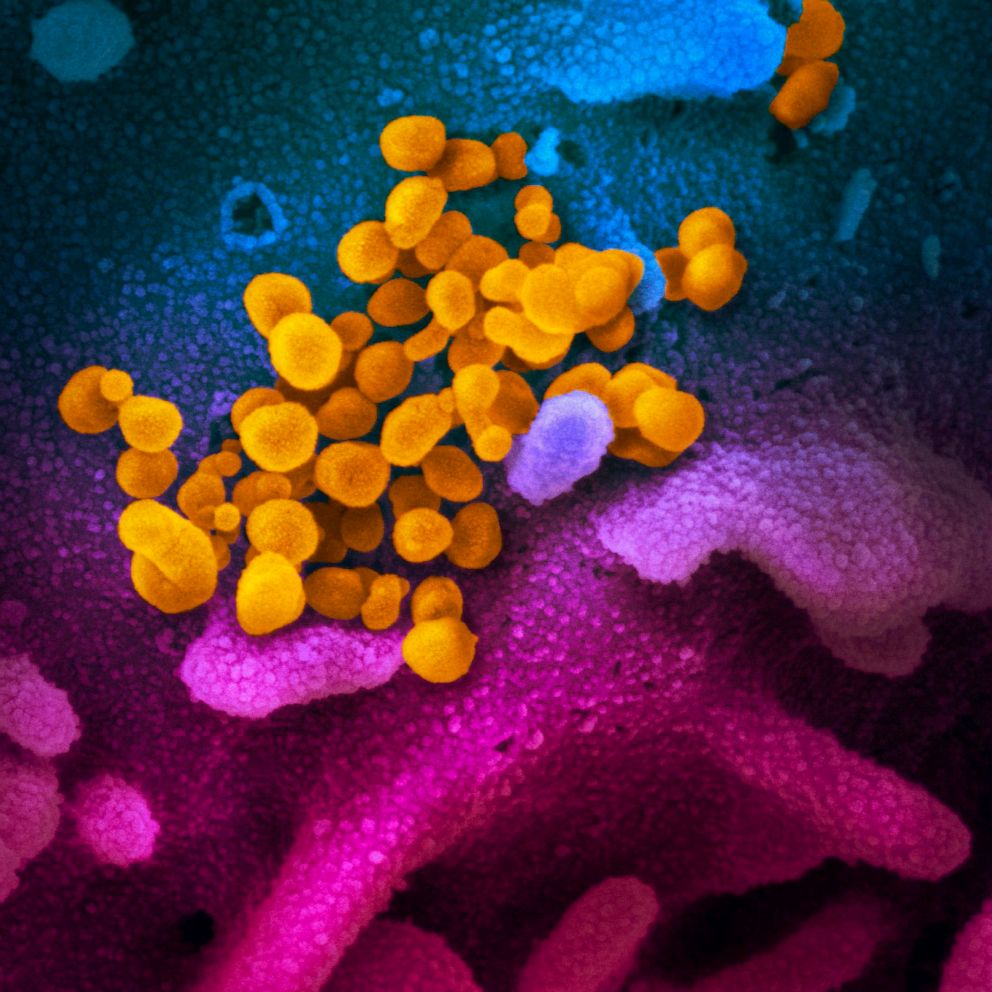With Trump eager to restart economy amid coronavirus crisis, experts implore feds for testing, tracing and a clear plan
Experts warn drastic measures by could be undone if U.S. moves too fast.
While President Donald Trump said he wants to reopen the economy by May 1, public health experts are adamant that if the country doesn't address the continuing coronavirus testing shortages and develop more aggressive virus tracking measures as part of a comprehensive recovery plan, reopening the economy might not just put Americans back to work -- it could put them in danger.
So far more than 20,000 people have died in the U.S. from the novel coronavirus, and only after weeks of widespread lockdowns are some communities, including New York City, beginning to see the rate of hospitalizations decline.
Trump said the decision to reopen "will be based on a lot of facts and instinct" -- at one point pointing to his head when asked what "metrics" he would use. He said he plans to announce a task force focused on reopening the economy this week.
But any rush to jump-start parts of the economy without adequate planning and measures to protect Americans could undo the hard-earned results of the recent mass mitigation efforts, according to several public health experts surveyed by ABC News.
"From the start of this, there needed to be adequate resources put to where this was going to be a month from now, two months from now, six months from now," said Dr. Ronald Waldman, a global health expert at George Washington University who spent several decades working at the Centers for Disease Control and Prevention (CDC).
"I haven't seen a plan come from the federal government as to how exactly to manage the downside of the curve and the recovery period," he said.

While Trump tweeted Monday that he, "in conjunction with" state governors, should be the one to decide when to "open up the states," experts told ABC News that state and local governments should be making their own decisions with federal guidance. To do open up rapidly without a common set of guidelines or best practices allows "a situation to develop where there's a kind of uncoordinated every person for [themselves] kind of policy," Waldman said, that could lead to new outbreaks as people travel from one state to another.
On Monday, the governors of New York, New Jersey, Connecticut, Delaware, Pennsylvania and Rhode Island announced the formation of a regional council to help coordinate their reopening efforts. Experts told ABC News there are a few key challenges:
Why testing is key to restarting the economy
Beyond a consistent decline in the number of new cases and the need to slowly reopen the economy in stages, experts agree that mass testing, and the ability to quickly get results, are baseline requirements to slowly get Americans back to work -- including both tests to identify who has the virus, and blood tests to determine who may be immune after prior exposure.

"There will be three kinds of people starting on May 1, and our job will be to sort them out, carefully and respectfully. There will be the susceptible, the infectious, and the already recovered," Tom Bossert, a former homeland security adviser to President Donald Trump and an ABC News contributor, wrote in a recent op-ed. "Most of us will be susceptible. We will not have been infected and will not have immunities. We will be dry tinder that could easily reignite."
But more than a month after Trump declared that "anybody that wants a test can get a test," the administration has repeatedly failed to meet its testing targets.
The U.S. has conducted more than 2.5 million tests, Vice President Mike Pence told governors Monday, according to audio of the call obtained by ABC News. The White House promised that 4 million would be available several weeks ago.
While Trump has boasted about the country's testing figures, the country has tested fewer people per capita than other nations.
The United States has tested roughly one of every 164 citizens. South Korea. for example, has tested roughly 518,743 people for coronavirus, according to to Korea Centers for Disease Control and Prevention, or roughly one of every 98 South Koreans.
A recent survey of more than 300 hospitals by a nonpartisan government watchdog found a "severe" shortage of testing supplies and "extended" waits for results, along with confusion across the country over how to prioritize limited testing.
Most experts agree that the country will have to quickly process hundreds of thousands of diagnostic tests each day to restart the economy -- enough to both test people who appear at hospitals, front-line workers, and a larger universe of people in order to get a better sense of the spread of the virus.
One report from the American Enterprise Institute suggested the U.S. would need to conduct 750,000 tests a week – a number based on the number of medical visits during flu season. Another report, from Harvard's University's Edmund J. Safra Center for Ethics, suggested millions of tests every day would be needed to aggressively track the virus and keep the infection rate low.
"We're not there yet," said Dr. Caitlyn Rivers, a senior scholar and assistant professor at the Johns Hopkins Center for Health Security, who authored the AEI report with a group of public health experts, including former FDA Commissioner Scott Gottlieb.
"We have expanded our capacity a lot, which is really encouraging, but I don't think we're at the point where everybody who needs a test is able to get a test, and that those tests results are able to be returned quickly," she said.
Some facilities are preparing to roll out serology blood tests, which could potentially be used to identify Americans who appear to be immune and could return to work immediately. Dr. Anthony Fauci, the country's top infectious disease expert, told CNN on Friday that a "rather large number" of antibody tests will be available "within a period of a week or so."
Tune into ABC at 1 p.m. ET and ABC News Live at 4 p.m. ET every weekday for special coverage of the novel coronavirus with the full ABC News team, including the latest news, context and analysis.
Trump on Friday downplayed the need for mass testing in the U.S., a statement at odds with public health experts' recommendations.
"Do you need it? No. Is it a nice thing to do? Yes. We're talking about 325 million people and that's not gonna happen, as you can imagine, and it would never happen with anyone else, either," he said.
On Twitter Sunday Trump suggested state governors were responsible for getting their testing "apparatus perfected." The president said the federal government was "here to help," but told the state leaders, "No excuses."
To stop new outbreaks, aggressive 'contact-tracing'
To limit future outbreaks, or so-called "second waves," communities will have to be able to quickly identify newly-infected people and anyone they come into contact with, to get them into self-quarantine where they can be isolated, monitored and treated.
This investigative process, known as contact tracing, is performed regularly by public health officials to monitor the spread of other diseases, including the flu and Ebola.
Individual states, such as Massachusetts and Utah, have started to stand up their own contact tracing programs -- each effort requiring around 1,000 people.
But a serious tracking effort to enable states to prevent future outbreaks will require "a lot more manpower" to follow every chain of contacts, said Dr. Saad Omer, an epidemiologist and Director of the Yale Institute for Global Health.
It will also require sufficient testing to determine if people are spreading the virus to their contacts, said Omer, who called the ongoing shortage "mind-boggling."
In Wuhan, China, where the coronavirus outbreak was first reported, the Chinese government had 1,800 teams of at least five epidemiologists working to trace "tens of thousands" of contacts each day, according to a World Health Organization report from February.
In a recent interview with NPR, CDC Director Robert Redfield said the government needs to "substantially amplify" its efforts to help expand contact tracing across the country.
With local public health departments underfunded and lacking the personnel to rapidly trace contacts during a nationwide outbreak, in some instances, they have simply given up and shifted to focusing on mitigation. Going forward, experts said the federal government should also provide more funding for local agencies, in addition to manpower.
Omer has suggested using the National Guard to help stand up larger contact tracing operations, while others have floated that the newly unemployed, or even the thousands of idle Peace Corps volunteers, could be trained to help contract trace.
Beyond personnel, health authorities in China, South Korea and Singapore have relied on technology – from CCTV camera footage, to GPS tracking and credit card records – to successfully monitor contacts and tamp down potential outbreaks.
In the U.S., the conversation around technology and contact tracing has been led by private companies. Apple and Google on Friday announced plans for a smartphone platform to help track coronavirus contacts while maintain certain privacy safeguards.
But it's unclear how effective an opt-in system would be at tracking the aggressive virus, and how much Americans would be willing to sacrifice more of their digital privacy for the sake of public health.
‘If everybody just rushes back to normal, we're going to have real problems'
While private companies, think tanks and some states are beginning to contemplate how to reopen American society and the economy slowly in stages, the lack of guidance and expectation-setting from the federal government could complicate efforts to do so in an organized and coordinated fashion.
"If everybody just rushes back to normal, we're going to have real problems," Dr. Aaron Carroll, a professor of pediatrics at Indiana University School of Medicine, told ABC News. "How will schools be safe if they weren't before with respect to transmission? How will restaurants function if they were not safe before? Will companies just go back to normal where everyone is just thrown right back in the mix? Will public transportation be the same as it was?"
With many treatments still in experimental stages, and a vaccine for coronavirus expected to be 12 to 18 months away, it's unlikely that life will get back to normal anytime soon. Some public health restrictions, such as social distancing, limits on large gatherings, and guidance on wearing masks in public should remain in place, experts said.
"There may have to be changes to how we organize and do all the activities we do in order to make sure that we don't end up right back where we were," Carroll said.
Beyond making sure various industries and institutions follow a shared set of safety guidelines, the federal government and leaders should be setting Americans expectations about what comes next, Dr. Michael Osterholm, an epidemiologist with the Center for Infectious Disease Research Policy at the University of Minnesota, told ABC News.
What to know about Coronavirus:
- How it started and how to protect yourself: Coronavirus explained
- What to do if you have symptoms: Coronavirus symptoms
- Tracking the spread in the U.S. and worldwide: Coronavirus map
For some communities, that could be remaining in lockdown. For others, it could be a slower process that could require many people -- and, potentially, some communities -- to self-isolate again.
"There's a lot of people that are hopeful that when we bend this curve we will have successfully stopped the future of this pandemic," he said. "That's just simply not true."
Osterholm has called for Trump to assemble an "intellectual Manhattan Project" by bringing together the "best minds" in public, health, medicine, business, and other fields to put together a set of realistic benchmarks for the country, and a plan to meet them.
"What is our goal? Is our goal to shut this down completely until we get a vaccine? Is our goal to have ongoing transmission and low risk groups for serious illness till we get a vaccine? Is our goal to let it run willy nilly and hope the best?" he said. "What are we trying to accomplish here? That hasn't been articulated."
"We need to bring that brain trust together, and both articulate it and define what we can do about it," he added.
ABC's Katherine Faulders contributed to this report.







